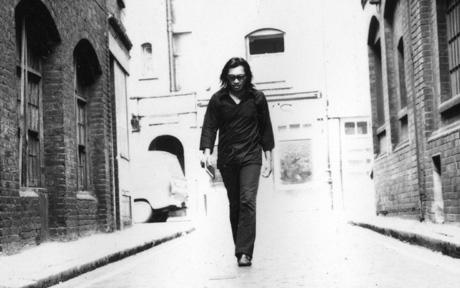
It's not often enough that I enter a movie theater to see a film about which I know nothing and emerge feeling so delightfully surprised. Luck was on my side in having had a good friend with noble taste in film orchestrate a Friday afternoon outing at the Lincoln Plaza Cinema for a screening of the new documentary, Searching for Sugar Man.
There once lived an extremely gifted singer and songwriter with an astonishingly poetic nature, who made two albums -- Cold Fact and Coming from Reality -- who was only active on the fringe of the music scene from 1967 to 1971. In spite of profound acclaim by critics and the noteworthy admiration of music producers/professional musicians (Mike Theodore, Dennis Coffey, et al.), label executives (Clarence Avant) and musicologists, the work of this Detroit-born artist -- known variously as Sixto Rodriguez, Jesus Rodriguez, Rod Riguez and just plain Rodriguez -- is virtually unknown in the United States. Physically ethereal, photos of Rodriguez often showed him with long, black flowing hair covering one side of his face. Also, not one image seemed to exist, without him wearing heavy, very dark sunglasses -- reminiscent of Roy Orbison's signature eyewear in terms of their eerie effect.

The enigmatic artist known as Sixto Rodriguez sashays through city streets circa the early 1970s.
Photo: Courtesy of Regan Rodriguez/Sony Pictures Classics.
Rodriguez is remembered in the film as performing with his back to the audience. Other talking heads, who worked with him on construction jobs, wondered if, given the tattered look of his clothing, he was a homeless, down-and-out drifter. In reality, this unusual troubadour also held a B.A. in philosophy, and loved to quote Voltaire.
A meta-Bob Dylan in terms of the quality of his lyrics, he dazzled the imagination by bridging the difficult artistic gaps between romantic ballads ("I Think of You"), politically subversive/protest hymns ("The Establishment Blues"), and working-class/working-poor anthems ("Cause"). In a folk-rock style that sounds familiar because it's just so right, his unique brand of poetry was accompanied by a hauntingly beautiful voice. (It seems impossible I might have heard Rodriguez before. In the early '70s, our kitchen radio was tuned to the local station in Hopewell, Va., not a hotbed for cutting-edge music.)
A puzzling fiasco in America, Rodriguez would emerge in the mid-1970s as the most celebrated musician in, of all places, South Africa -- among music aficionados and later, an enormous cross-section of Afrikaners sickened by apartheid and weary of the strict censorship imposed by the quasi-military regime. Rodriguez's lyrics were so potent that certain songs from his albums were scratched by state censors so they could never be broadcast on the radio. Against all odds, the fervor over this musical prodigy never waned and survives to this very day in South Africa.
This first, feature-length documentary by Swedish director Malik Bendjelloul takes many fascinating twists and turns from Detroit to South Africa and back again. Many questions are posed, especially mythic are those surrounding the nature of Rodriguez's demise: Did he pour lighter fluid on his clothing and set himself on fire on stage? Or, did he shoot himself in the head at the end of one of his rare Detroit concerts?
The more fascinating story, however, lies in the miracle of Rodriguez's extraordinary character. The son of Mexican immigrants, he was a man authentic to his very core who didn't give a damn about money and material things, much less fame. He also raised three charming daughters, one of whom emerges as the most poignant talking head in the film.
If the facts stated thus far aren't compelling enough, readers should know there is more to the Rodriguez miracle that rivals, and may even surpass, the scope of the themes one might find in a Frank Capra film, i.e., how the activities of one humble yet extraordinary man can triumph over a cesspool of injustice and corruption. Searching for Sugar Man is a wonderful documentary imparting the true story of Sixto Rodriguez, where fact isn't just stranger than fiction, it's more extraordinary than the myth it starts out with.
Searching for Sugar Man opened in NYC and LA in late July.
NB: Reviews of Searching for Sugar Man and articles about the life of Sixto Rodriguez abound on the internet and in print media, most of which contain spoilers. If, by some "miracle," you haven't read anything previously and want a more rewarding film experience, see it before you turn to your favorite search engine for more information.